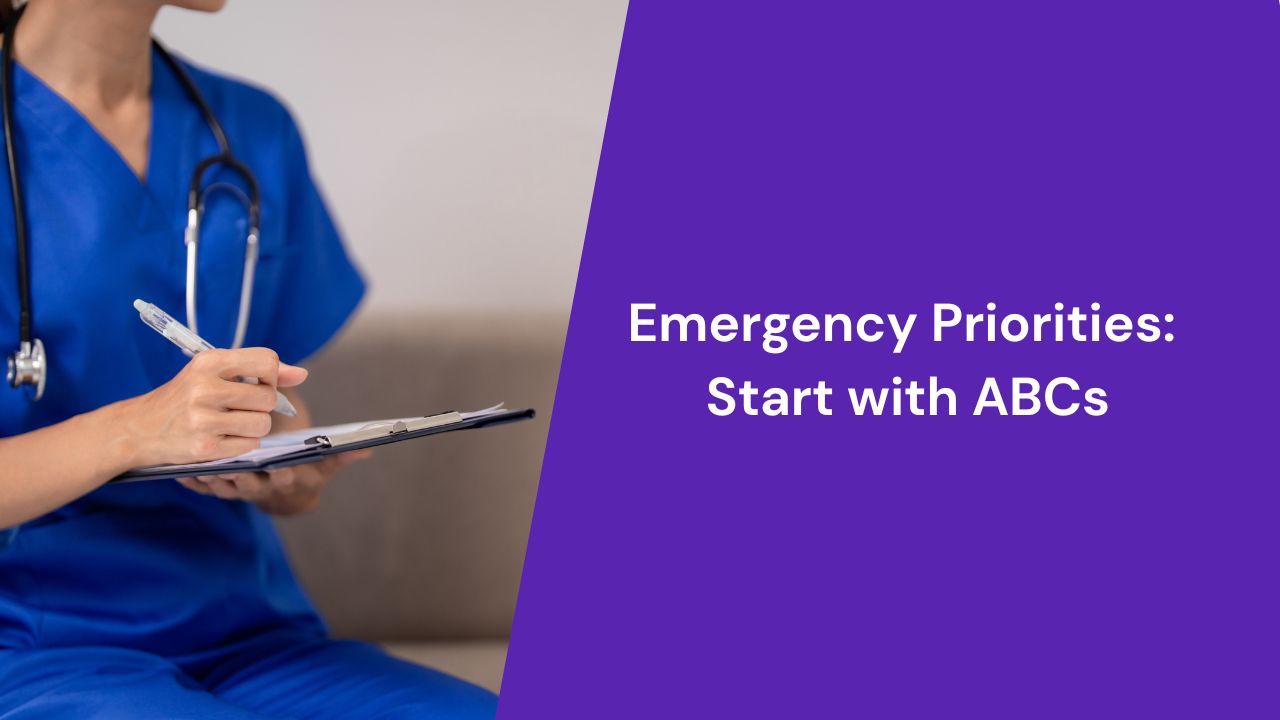The concept of moral injury has been around for a long time. Originally attributed to military personnel—and particularly those in high-pressure and traumatic situations—moral injury has since branched into other fields and vocations, including healthcare.
Throughout the last three years, the American healthcare system has faced a unique series of stressors from COVID-19. Healthcare staff, already overworked and often dealing with burnout, have been forced to make difficult decisions with incomplete information and limited resources. Under this monumental stress, many frontline healthcare workers find themselves struggling to reconcile their morals and beliefs with the reality of their work.
Luckily, even nurses facing moral injury on a regular basis can take steps to prevent its adverse effects. In this article, we’ll discuss some of the identifying factors of moral injury and what can be done to prevent it from impacting your work and life.
Definition of Moral Injury?

Although most commonly associated with military personnel, “moral distress” (which would eventually morph into “moral injury”) was first named in Andrew Jameton’s 1984 book, Nursing Practice: The Ethical Issues. Thus, from the beginning, this has been an issue associated with nursing and healthcare.
Essentially, moral injury boils down to a fairly simple concept: psychological damage that occurs when someone is continually exposed to stressful, confusing, and morally compromising situations.
For military personnel, the impact or moral injury can be felt following combat missions, during which decisions are often made that run counter to an individual’s personal morality or code of ethics. For nurses, similar situations arise surrounding patient care in stressful, fast-paced situations. At times, coworkers or greater organizational protocols demand that a nurse act in ways that do not gel with that nurse’s beliefs or moral perception. Other situations may force a nurse to make decisions with incomplete information or to choose a “lesser of two evils.”
Nurses facing these situations on a regular basis may feel a range of difficult and, at times, debilitating emotions, such as anger, guilt, fear, and shame. At the same time, the overwhelming wave of emotional distress that comes with pandemic-era nursing can leave others feeling empty and exhausted.
Moral Injury vs. Burnout
Like moral injury, burnout has always been associated with nursing and other healthcare professions. However, while the two conditions have many things in common, there are a few key differences to note.
Burnout, defined by Merriam-Webster as “exhaustion of physical or emotional strength or motivation usually as a result of prolonged stress or frustration,” tends to result from overwork and a continued, unsustainable output of energy. On the other hand, moral injury comes from repeated instances of moral or ethical compromise, as mentioned above.
Of course, the two are not unrelated, and both exist heavily in the healthcare system and especially among frontline workers. In some cases, one may even cause the other. For instance, in a 2020 article by Kaiser Health News, some doctors even identified moral injury as the cause of their continued burnout.
In an industry that is simultaneously overworked and emotionally tumultuous, the lines between burnout and moral injury often blur. However, what has traditionally been labeled as “burnout” in the system is increasingly becoming identified as moral injury.
Treating Moral Injury

Nurses, by and far, are better at caring for their patients than for themselves. Indeed, this constant focus on patients’ well-being has led to the perpetration of burnout in the healthcare system. Nurses push themselves to the limit in the name of better patient care.
However, taking time off, practicing mindfulness, and maintaining a good diet and exercise routine can all help alleviate burnout. Healing from moral injury is not so simple.
As with many conditions, the first step in healing is recognizing that a problem exists and seeking help for it. If you’ve been dealing with an increasing moral injury for years, simply recognizing it for what it is can be the first step in healing. Beyond recognizing moral injury in your life, shifting your mindset and perspective can also help you cope with and heal from sustained moral injury.
In his 2020 article on the subject, medical ethicist Ira Bezow writes, “Believing that the desire to do good is the same as being able to do good leaves medical professionals in a situation where they are going to get hurt.” In cases where one’s desired outcome clashes with the reality of the situation, accepting reality for what it is—and not as a reflection of one’s moral shortcomings—can be the best path forward.
See also - How to Cope with Patient Deaths
Reflection, mindfulness exercises, and professional counseling/therapy can all help you develop and integrate this understanding in a personal and true way.
You should always recognize that you are doing the best you can. At times, your best efforts cannot change the reality of the situation. By practicing empathetic and professional care, you will ultimately do much more good than harm, regardless of a single negative patient outcome.
Moral Injury in Healthcare
Unfortunately, there is no one-size-fits-all solution for moral injury. However, coming to the realization that the good you bring every day—to patients, coworkers, and everyone else around you—can help you alleviate the moral pain you feel when facing distressing situations on the job.
At the same time, understand that your ideals are not always the reality of the hand you’re dealt. By making the difficult decisions—and even ones you may regret—you are operating the best you can in an imperfect system. And remember: You are a good nurse. Only those with a strong moral compass can suffer from moral injury.
Did you find this article useful? Browse our per-diem nursing blog for content related to every aspect of nurses’ jobs, and—if you haven’t yet—download our healthcare staffing app and find the highest-paying per diem nursing jobs today!









.jpg)




